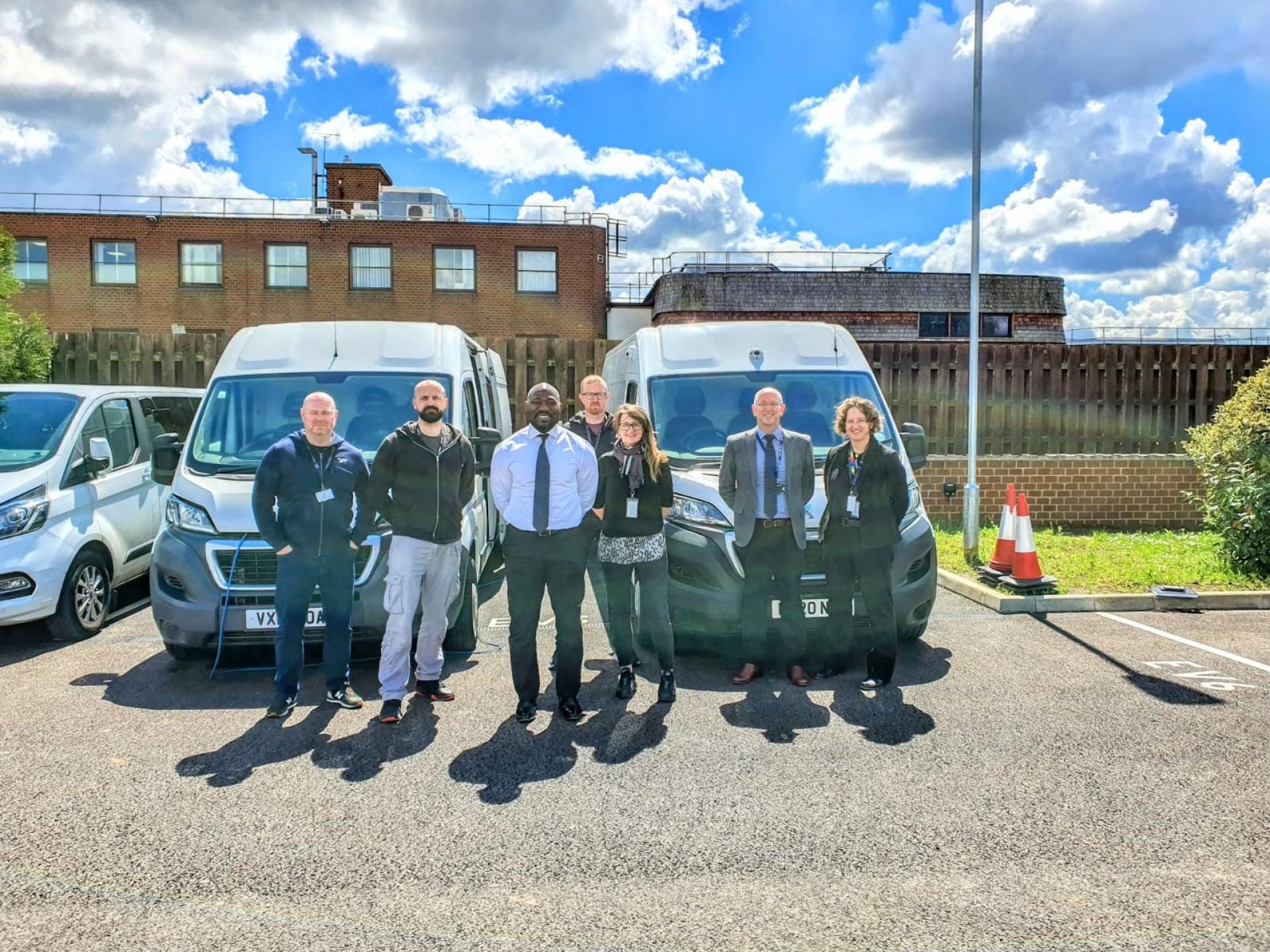
As part of the Government’s Rape Review action plan, Transforming Forensics recently kicked off a new £5m project to help forces improve their response to rape and other serious crimes through the use of new digital tools and tech. The project draws on a highly successful model developed by Bedfordshire Police. In this Force Focus, Beds’ Detective Chief Superintendent Julie Henderson and Detective Inspector Pete Ward tell us about the approach and where the inspiration for it came from.
For the last three years, Bedfordshire have used Digital Triage Vans – Peugeot vans custom-fitted with desk space, air conditioning and high-spec wiring enabling teams to take digital forensic tools and kit to crime scenes and examine and triage devices on location. This helps them to offer a faster, more sensitive service to victims, ensures the right digital evidence is delivered to investigating teams quickly, and reduces the number of devices that end up being taken to force. In their first year of use, the vans enabled 45% of seized devices to be returned the same day and 160 exhibits containing evidential data to be shared with investigators, again on the day.
The idea for the vans was originally rooted in staff welfare. Julie says:
“We were working on a case, in the kitchen of a rape suspect. My DMI had a laptop balanced on a worktop, trying to find devices we might need to look at. The suspect’s wife was in the room, getting agitated and putting us under real pressure. I thought, 'This just isn't right. It’s compromising the investigation, putting the team at risk and it’s not fair on the family’. So I started to think of ways around the problem.”
From that idea, a highly effective mobile digital forensic capability has developed. In just one year, Bedfordshire’s Digital Forensics Unit (DFU) backlog for computers and phones combined dropped from 471 to 38 days and has continued to reduce, even against a backdrop of rocketing demand. From a single van 2018/19, Bedfordshire is now awaiting delivery of its third and fourth vans, which will help to further improve response times and reduce backlogs. The vans have also been deployed to support other forces in the Eastern region.
While the vans are crucial, at the heart of Beds’ success is a focus on creating the right culture and an integrated approach which sees Digital Media Investigator and DFU teams co-located and working seamlessly together. This was demonstrated when the teams collaborated to achieve UKAS 17025 accreditation for mobile phone extractions within a lab-based environment.
Steps have also been taken to ensure expertise is retained and skills and experience blended across the unit. For example, Garry Dix, Digital Forensics Manager for Beds, Cambs and Herts, is a retired policeman with 35 years’ service. This background enables him to provide expert insight from an operational policing perspective, which informs how the team tackles training and quality. The approach has also had a positive effect on staff turnover, with Beds staff seeing significant investment and professionalisation of their working environment.
Pete, who manages the Cyber department, said:
“We’ve listened to the team, encouraged innovation and empowered them to design their own working environment. This has led to a marked improvement in morale, real enthusiasm for the model and a passion for demonstrating how it works.”
Julie adds:
“The vans are great. They allow us to take all the kit we need to victims, crime scenes and other locations of interest, and provide a safe, quiet, comfortable and secure space to work from. But they’re really just the icing on the cake. Sitting beneath it all is a really joined-up approach to working that brings different teams together in new ways which really make the most of our skills and experience. It’s taken us a few years of honing and improving to get to where we are now. But the results for the force, and the impact this has for victims, speak for themselves.”
The Bedfordshire Police and Crime Commissioner, Festus Akinbusoye, says:
“As PCC, a key driver of the added investment I made was the need to expedite justice for victims but also to enable them to get back to their normal life as much as possible. In the case of rape, being able to have digital devices back at the earliest opportunity could be the difference between further trauma or access to support network. Really delighted with our work and team.”
The Transforming Forensics project aims to share the Beds model, along with learnings from previous proof-of-concept trials looking at deployment of ruggedised kit/upgraded kiosks, for the benefit of participating forces and policing more widely.
Julie concludes:
“We’re delighted to be working with TF on this project. We’re not saying that all forces have to do it the Beds way, but we hope that, by sharing our approach and the lessons we’ve learned, it will help others to respond better to the victims of rape and other serious crimes. It’s going to be really exciting watching this develop over the coming months”.
About this article
Force Focus is our series of in-depth articles sharing insights and ideas from people across the network. To share a story from your organisation, please get in touch.